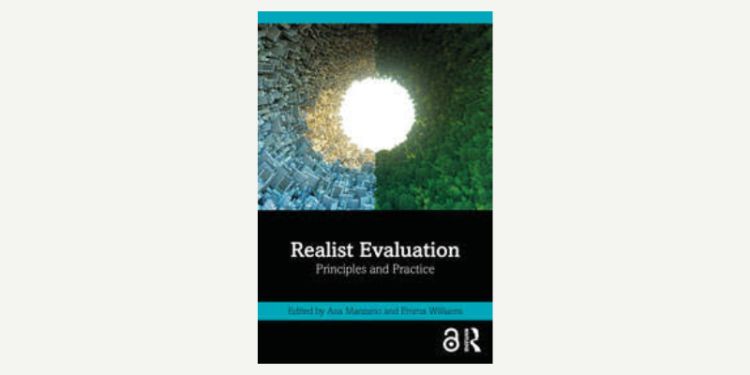An interview with Professor Ana Manzano, co-author and co-editor of Realist Evaluation: Principles and Practice

Welcome to our Book Interview Series where we hear from academics and researchers across the School of Sociology and Social Policy (SSP) about their most recent book publications.
Our latest book interview has been with Professor Ana Manzano, co-author and co-editor of Realist Evaluation: Principles and Practice (Routledge, 2025).
Professor Ana Manzano, Professor of Public Policy Evaluation, is an applied social scientist, working on bringing methotdological expertise in the research and evaluation of complex public policy issues. Prof. Ana Manzano is an expert in the relationship between research methods, evidence and policy making. Prof. Ana Manzano is currently working as the lead investigor in UKRI Resarch Fellowship ‘Evaluating Innovation Policy: Department for the Economy (Northern Ireland)’.
Tell us about your latest book
Realist Evaluation: Principles and Practice is a comprehensive exploration of contemporary realist evaluation, offering insights into how evaluators apply these methods across various disciplines. It brings together expert contributions from academia and evaluation fields across five continents, covering topics such as climate change, criminology, health, and international development. The book highlights innovative methodologies, including participatory approaches, digital and visual data collection, and refuse data analysis, while also addressing key theoretical concerns such as power dynamics, and confirmation bias in qualitative research.
Can you give an insight into the research process and journey leading up to publication?
The book is the result of extensive collaboration between leading experts in realist evaluation, many of whom are at the forefront of methodological innovation in their respective fields. The research process involved synthesising diverse global perspectives, incorporating case studies from different disciplines, and showcasing emerging trends in realist evaluation. The contributors engaged deeply with contemporary social research methodologies, ensuring that the book provides both theoretical grounding and practical guidance. Additionally, the involvement of realist evaluation and realist synthesis pioneers like Prof. Nick Tilley and Dr Geoff Wong strengthens its authority in the field.
What do you hope readers will take away from the book?
Readers will gain a thorough understanding of how realist evaluation can be applied in practice, equipping them with tools to navigate complex research and policy environments. The book offers practical advice on key aspects such as designing topic guides, conducting cross-national research, and integrating realist reviews with evaluations. It aims to inspire creativity in realist evaluation and encourage evaluators to think critically about evidence, research design, and power dynamics in their work.
Are there any people in particular that you would like to read the book?
The book is ideal for postgraduate students, researchers, and professionals engaged in policy-making, evaluation, and applied research. It will be particularly valuable to those working in think tanks, NGOs, and governmental organisations, as well as academics exploring realist methodologies. Given its practical insights, it is also a useful resource for professional evaluators looking to enhance their methodological toolkit.
What is next for you?
Building on the themes of this book, future work may involve further exploring the evolving landscape of realist evaluation, potentially expanding into areas such as AI-driven evaluation methods, and more case study-based practical applications. Additionally, ongoing collaborations with international researchers and evaluation practitioners will lead to new projects, and further publications that deepen engagement with emerging challenges in evaluation.
You can find out more about Professor Ana Manzano via LinkedIn.
The previous book interview in the series is available here.
Follow SSP on Bluesky for all the latest news.




